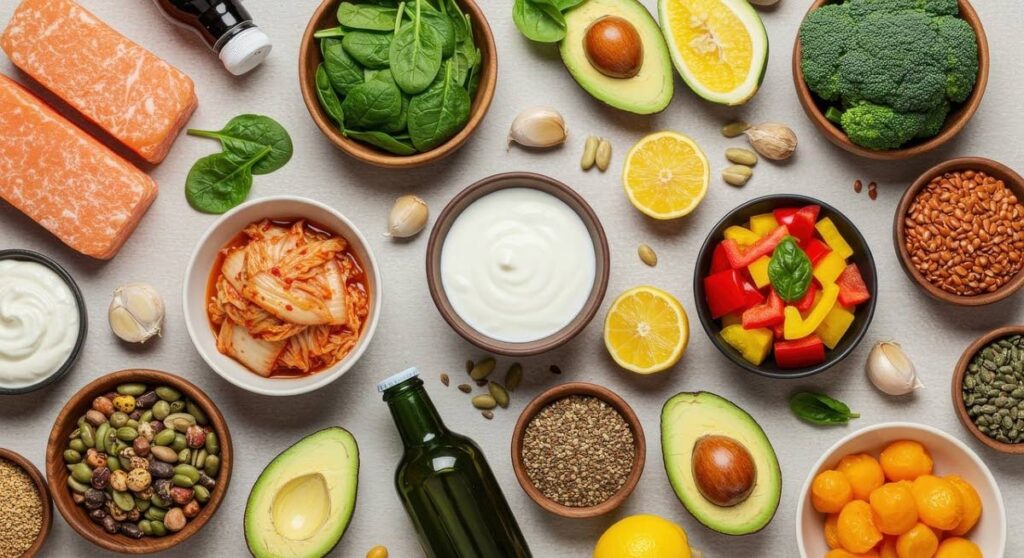Tuesday 14 October 2025
 There is an encouraging trend in the increased openness to mental health conversations among younger people and men recently. –
There is an encouraging trend in the increased openness to mental health conversations among younger people and men recently. –
BAVINA SOOKDEO
October is Mental Health Awareness Month and clinical and organisational psychologist Kelly Mc Farlane believes the observance is not only important but essential.
“No one is exempt from at least the occasional mental health problem,” Mc Farlane said. “Whether it’s stress, loss or anxiety during a high-stakes period, it affects us at the community level, family, workplace and personally – in both negative and positive ways.”
She emphasised that the month serves as a reminder that understanding mental health is the first step to protecting it. “If not you, then you certainly know someone who has had or is battling a threat to their mental well-being. Having these special days or months helps people who are struggling to feel supported and seen and it encourages them to get help or continue their help if they’re already getting it.”
For Mc Farlane, global observances like World Mental Health Day – celebrated on October 10 – offer opportunities for collective reflection and practical change. This year’s theme, Access to Services – Mental Health in Catastrophes and Emergencies, resonates deeply within the Caribbean context.
“Living in the Caribbean, we are constantly aware of natural disasters, especially with global warming.
 Clinical and organisational psychologist Kelly Mc Farlane –
Clinical and organisational psychologist Kelly Mc Farlane –
“We’ve experienced major flooding, hurricane warnings and even a tornado in Trinidad recently.” She also spoke about the covid19 pandemic explaining there is evidence that the period significantly affected the mental health and well-being of both adults and children.
She noted that crises – whether environmental or social – can leave long-lasting emotional scars. “There are people who are still traumatised by having lost loved ones, jobs, or even school experiences. The rise of anxiety and depression is something we continue to see globally and locally.”
Mc Farlane said she still hears complaints about access to mental health care, particularly about the cost of private care and wait times in public care. However, she explained, “There are services available – public sector clinics, hospital mental health departments – so, I think, more awareness of the options that people have for mental health is important…that will improve the access to care.”
Mc Farlane acknowledged that while the stigma surrounding mental health is decreasing, it remains one of the biggest barriers to care. “Sometimes people feel a sense of shame about experiencing mental health challenges,” she said. “Even though many people are open and bold about therapy, some families still discourage help-seeking or dismiss it by saying things like ‘snap out of it.’”
She emphasised that social support plays a major role in recovery. “Research shows that social support, especially from people who are close to you, is one of the major influences of good mental health or bad mental health, if you don’t have it.”
To reduce stigma, she advocates for more campaigns, education and mindfulness in how we talk about mental health. “We need to be careful about the language we use – not calling people ‘mad’ or ‘crazy,’ and being respectful toward those struggling with addiction or mental health challenges. Be empathetic instead of judgmental and learn to actively listen and support.”
While there is room for improvement, Mc Farlane noted that Trinidad and Tobago has a growing number of mental health resources. “The regional health authorities and health clinics have mental health services, with psychiatrists and mental health officers available. There are also private practices and free options listed on FindCareTT, a directory that connects people to mental health resources.”
Mc Farlane also highlighted newer initiatives like U-Matter Chatline which was recently launched by the Ministry of Health. She also referenced hotlines such as Lifeline.
One encouraging trend she has observed is the increased openness to mental health conversations among younger people and men. “We’ve come a very long way in understanding and accepting what mental health is,” she said. “There’s a lot more talk and prioritising of mental health among young people and recently, a lot more advocacy focused on men and boys.”
For anyone afraid to reach out for help, Mc Farlane’s advice is: “Don’t not reach out for help. Even if you need to do it privately, there are resources available. Start the conversation – whether it’s with someone you trust or a mental health professional. You can even tell them that you’re afraid, and they will guide you through the process at a pace that feels comfortable.” She urged people to remember that mental health care is not just for when things fall apart – it’s for maintaining your strength, resilience and peace of mind.
Mc Farlane reminded us that understanding is the first step to protecting your own mental health – and perhaps supporting the mental health of your children, co-workers, and loved ones too.
Nourishing the mind
When contacted by Newsday, dietitian Dana Chong reminded us that what’s on our plate can powerfully influence how we think, feel and function each day. “Nutrition and what we eat impacts our mental health as what we eat provides fuel for how our brain functions,” Chong explained. “Our gut and brain are connected by 100 million nerves, therefore what we nourish our bodies with will ultimately impact our brain, mental health and overall mood.”
 Foods which can help boost our brain health include green leafy vegetables, fatty fish, berries, tea, coffee and walnuts. –
Foods which can help boost our brain health include green leafy vegetables, fatty fish, berries, tea, coffee and walnuts. –
A registered dietitian for the past five years, Chong explained that foods which can help boost our brain health include green leafy vegetables, fatty fish, berries, tea, coffee and walnuts. These foods are rich in vitamin K which may be beneficial in slowing cognitive decline, omega-3’s that reduce the risk of Alzheimer’s, phytochemicals that improve memory and caffeine in moderation, that helps to boost memory function.
“Try to include fish at least twice per week, green leafy vegetables most days per week and coffee and walnuts a few times per week. But balance is key – don’t stick to these foods only.” She recommends including them as part of a healthy diet with a variety of nutrients from the food groups – staples, legumes, foods from animals, fruits, vegetables and fats and oils.
The dietitian stressed that poor nutrition, can increase one’s risk of developing conditions such as anxiety, depression and brain fog. She said studies have shown that poor gut health plays a role in the development of these conditions and can develop from not eating a balanced diet and by consuming too many processed foods high in sugar and fat, which are high in calories but do not contain all the vitamins, minerals and antioxidants that we need to maintain our health.
Chong recommended more foods with probiotics in them (yoghurt, sauerkraut, dahee, sourdough bread, miso and kombucha) to introduce good bacteria into the gut to support better focus, calmness or resilience to stress.
“One chemical messenger that is produced in the gut is serotonin” she explained. “It is responsible for mediating our mood, sleep, appetite, memory and social behaviour. Therefore, when asking what foods can help us focus and manage stress, we need to consider, is my gut healthy?” Chong explained that the amount of serotonin produced in the gut is dependent on how much good bacteria we have present in our gut. “This means that if our gut health is poor and we have a higher ratio of bad to good bacteria in our digestive tracts, we will not produce enough serotonin.”
When it comes to managing stress or anxiety, Chong warned against the lure of “comfort foods.”
“Oftentimes people turn to comfort food when they are stressed or down, however little do we know that these same comfort foods can promote the growth of bad bacteria that contributes to our stress, anxiety and low moods.” Instead, she recommends meals that follow a Mediterranean or traditional Japanese-style diet. She said studies have shown that people following these diets have a lower risk of developing depression compared to those who follow a Western diet.
Eating patterns can also impact your mental health. Tt is essential to follow a regular eating pattern such as having small regular meals and snacks that contain fibre, probiotics and prebiotics.
 Dietitian Dana Chong says what’s on our plate can powerfully influence how we think, feel and function each day. –
Dietitian Dana Chong says what’s on our plate can powerfully influence how we think, feel and function each day. –
Hydration also plays a vital role in mental performance. “Seventy-five per cent of brain mass is made up of water.
“Studies show dehydration can have negative side effects such as reduced physical and mental health, short-term memory and short attention span. Rehydration, on the other hand, had positive effects including improved mood, improved memory, better attention span and reduced fatigue.”
She recommends aiming for two litres or eight cups of fluids per day with the majority of hydration being from water and other options being unsweetened tea, coffee, fruit infused water and 100 per cent fruit juice. Avoid using energy drinks and other sugar-packed drinks.
She further cautioned against overreliance on caffeine and sugar stating that research has shown that a caffeine intake of 400 mg and above can increase anxiety risk in individuals. She said, “400 mg is equivalent to approximately four cups of coffee per day. Therefore, we should be mindful of the amount of caffeine we have daily as other foods and drinks contain caffeine beside coffee (such as energy drinks, chocolate/chocolate drinks and some teas).” If drinking coffee, Chong said it is best to limit yourself to three cups per day, especially if you are prone to anxiety and do not sleep well.
She noted that sugar can also cause anxiety when consumed in excess. Chong added that The American Heart Association recommends that women and children consume no more than six teaspoons of added sugar per day, and men consume no more than nine teaspoons per day. “Try to eat and drink less sweetened foods and drink, to reduce anxiety and improve sleep.”
Chong added that traditional herbs such as gingko and ginseng may help improve mental well-being. She explained that these herbs not only enhance brain function but also reduce the risk of depression. Chong advised that they are best used in their most natural forms rather than as processed supplements like capsules. She also cautioned that individuals should consult a doctor before using any herbal remedies, as certain medications can interact with herbal medicines.
So what if you are working with a small budget? How do you eat well? The dietitian advised that eating well for mental health doesn’t have to be expensive. She recommended choosing vegetables that are affordable year-round, as well as those that are in season or on special, to get the most value for money. Simple options like sliced cucumbers can serve as healthy additions to meals or snacks. She noted that dried peas and beans are inexpensive sources of protein and fibre that help nourish good gut bacteria and can replace red meats, which are often costlier and can promote bad gut bacteria when eaten in excess. “A complete, healthy meal on a budget can be as simple as coo-coo, red beans and bhagi (dasheen bush).”
As we observe Mental Health Awareness Month, Chong urged readers to be mindful of what they put into their bodies. She said, “Of course, we can treat ourselves occasionally however most days we should eat well to feed our gut and our brain which can ultimately improve our productivity and mental well-being.”

